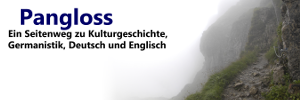Working with Online Dictionaries
Step 1a: English > Language B: Identify the problem!
|
Step 1b: Language A > English: Specify your needs!
|
Step 2: Collect possible translations!
Depending on your browser and search engine, the most commonly used online references are...
- Google Translator (usually embedded in Google’s search engine): https://translate.google.com/
- Leo (hosts a rather good discussion forum): https://dict.leo.org/englisch-deutsch/
- Dicct (very comprehensive): https://www.dict.cc/
- Linguee (based on a vast corpus of translations): https://www.linguee.de/
Step 3: Select the best entry!
The most complicated task is to narrow down the number of words until you’ve got the one you really need:
- by checking all the alternatives available;
- by looking at typical collocations and contexts provided by the dictionary;
- by checking forums and text corpora;
- by googling the word and examining its typical context;
- by looking it up at Wikipedia.
Step 4: Make sure you’ll use it well!
To understand in which context you may or may not use a given word, you need to know a few abbreviations:
- hum / joc = humorous / jocular (restricted to texts aiming at fun and entertainment)
- sl = slang (not to be used in academic discourse)
- poet = poetic, -al (restricted to poetry)
- vulg = vulgar (rude, should be used with discretion)
- pej / derog = pejorative ( derogative (potentially offensive)
- obs = obsolete (old usage, no longer up to date)
- iro = ironical (will be interpreted to mean just the opposite)
- inf / colloq = informal / colloquial (not to be used in formal speech or academic papers)
- form = formal (restricted to official documents)
- euph = euphemistic (used to avoid saying an unpleasant or offensive word)
- emph = emphatic (strong emphasis on what is to be said)
Also, the following resources will help you to find more detailed information about a given word:
- Wikipedia’s Wiktionary (detailed additional information): https://en.wiktionary.org/wiki/Wiktionary:Main_Page
- Merriam-Webster (leading American English dictionary): https://www.merriam-webster.com/
- Cambridge Dictionary (most prominent British English dictionary): https://dictionary.cambridge.org/
- Oxford Dictionary (another important British English resource): https://en.oxforddictionaries.com/
